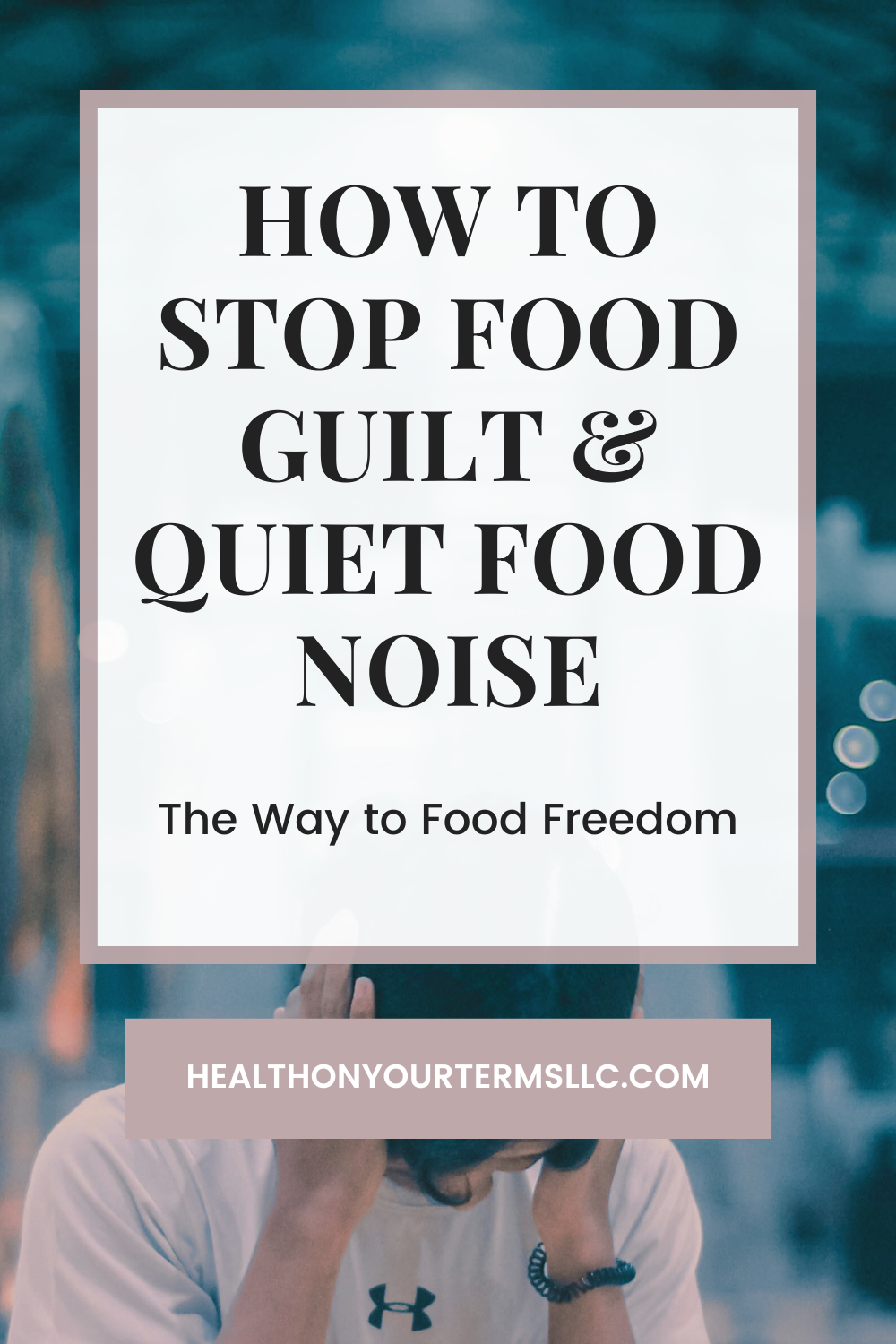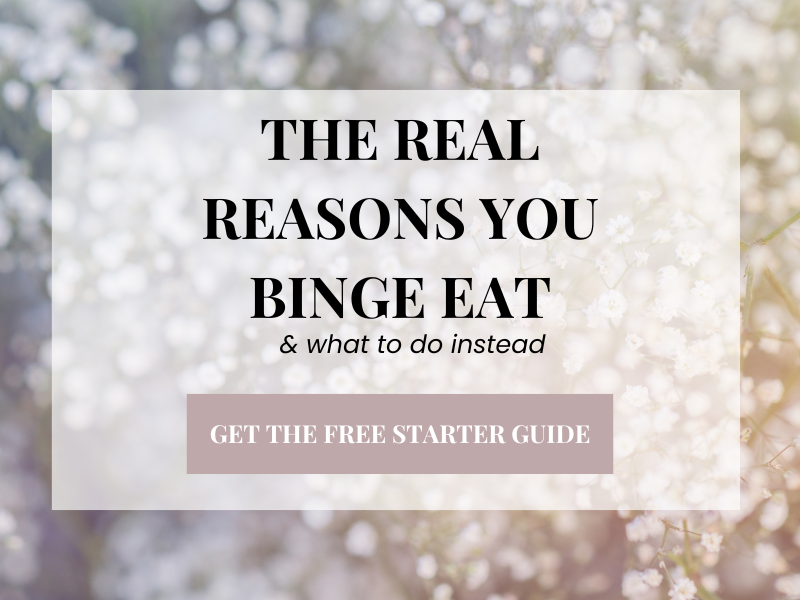How to stop food guilt & quiet food noise
When your mind is LOUD when it comes to eating, with its constant judgments about what you are about to eat, what you just ate, or will eat soon, this is called food noise. Being obsessed with what you think you should or shouldn’t be eating and the constant self-judgment associated with whether you’re adhering to the perfect standard you have in your mind can be exhausting and perpetuate a cycle of shame and guilt.
One way you may try to limit this food noise and the negative inner self-talk that comes up when you choose something less healthy or “bad” is by limiting yourself to a specific eating repertoire that’s healthy. having a strict list of foods you allow yourself to buy from the store to control your eating. But the only thing is that it doesn’t work because of course you feel bad when you go outside of that.
We’re groomed from a very young age to be a part of body shame, diet culture, and wellness culture. The culture we live in, like the air we breathe, conditions us, especially women, to think in very specific ways about eating, food, and our bodies. Beliefs like — we should be small and thin, our appearance matters more than our accomplishments, and our value is tied to our beauty and desirability — are drilled into us because it is so profitable for the diet/weight loss and wellness industries to sell us things to help us achieve these impossible ideals. None of this constant striving to achieve possible beauty and behavior ideals is your fault.
You are inherently worthy as you are just because you are human, no matter your appearance or achievement or others’ perceptions of you.
But even when we’re not consciously restricting our food or “dieting”, we can inadvertently create an environment of “food scarcity” for ourselves through some of these internalized beliefs and behavior with food.
The Way to Food Freedom
Doing the inner work to dismantle this programming especially so we don’t pass this on to our children, especially our daughters and future generations includes:
1. Learning (or remembering) how to listen to your body
We live in an overly intellectual society that honors the cognitive and logic, science, and reason over the wisdom of the body’s consciousness. However, there’s another equally valid, not better, just different way of knowing that’s accessed through our direct visceral, felt experience within the moment. It’s easy to override, it’s not often talked about. Sometimes people hint at it when they talk about mindfulness. But we all have access to our lived experience through our five senses as well as our interoceptive awareness or the internal sensations within our bodies that give us information at the moment about how we’re experiencing the world. When we’re cut off from this we’re incapable of accessing our truest form of power, adaptivity, and flexibility in the moment. It’s no wonder we turn to experts outside of us to tell us what to eat and think, but our bodies are ancient and designed by nature to give us in-the-moment access to knowing exactly what we need through our sensations, emotions that guide us, and even intuition if we’re more highly attuned or interested in further developing this sense. The body is a rich treasure trove of in-the-moment truth for each individual that has nothing to do with strict food plans or deprivation.
2. Building your emotional capacity to be with yourself through difficult emotions
This takes the first step of remembering how to inhabit and listen to your body a step further. Self-awareness, emotional regulation, and self-compassion are skills that we can learn to practice. It’s important to uncover the deeper underlying causes of any emotional or binge eating to give oneself the choice in how to deal with conditioned patterns of behavior as an adult now. AND to even get to a point where you can do the internal work of overcoming childhood trauma or patterns of behavior that no longer serve you, you need to start somewhere, which is often as simple as being with yourself in the experience of something that feels hard or you typically prefer to numb, suppress, soothe, or just look away from. Each person is individual, and this is also where it can be so helpful to work with a professional who can guide you through this, specific to what you’re facing.
3. Self Expression — not turning anger or other difficult emotions inward, but expressing who you are and what you need outward
While we have been conditioned to look and act a certain way to please others, a woman who betrays herself repeatedly to do so will have a breakdown in some way. Either you turn to emotional or binge eating to cope as a release valve, to numb the discomfort or to soothe yourself, or your body will say NO in no uncertain terms in other ways like mine did when I started to develop autoimmune-related diseases such as Crohn’s disease in my 20's.
Most of my emotional and binge eating clients say they have struggled with labeling food as good and bad since they were very, very young. If this is you, too, there is hope.
Jayne Anne Ammar is the owner of Health on Your Terms, and offers an alternative approach to support women struggling with emotional and binge eating towards food freedom, which is centered around sparking new insights, cultivating self awareness, emotional work, and unlearning old habits.

